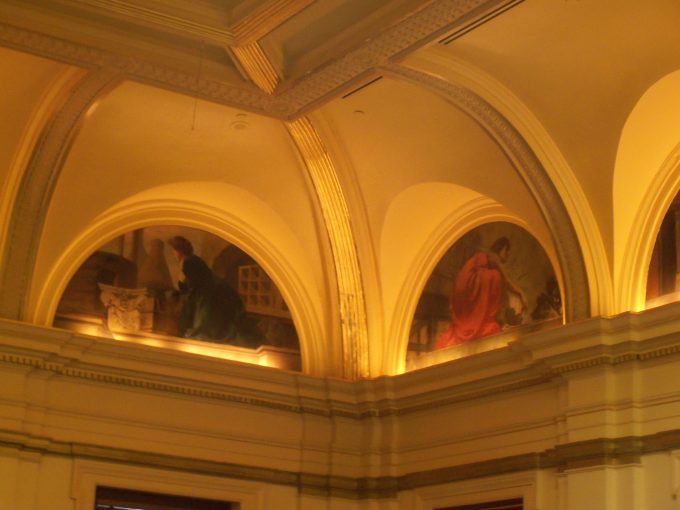
Saturday, 27 April 2019
And so terrifying was the sight that Moses said, “I am exceedingly afraid and trembling.”) Hebrews 12:21
The author now turns to the state of Moses at the giving of the law, citing something not recorded anywhere in Scripture. Speaking of the giving of the law, he says, “And so terrifying was the sight.”
This tells us that it is speaking of the display of the Lord on the mountain which has been referred to since verse 18. It is not a reference to any other time. From there, he quotes Moses, saying, “I am exceedingly afraid and trembling.”
It is these words which are in question. There is no such quote to be found. This leaves several possibilities. One is that he is citing a non-biblical tradition among the Jews, of which there are such commentaries in existence. Another is that the author is making the claim under divine inspiration. Stephen speaks of things in Acts 7 which are not recorded elsewhere. A third option is that the author is tying the account of Exodus 3 in with that of Exodus 19:6. There it said, “And Moses hid his face, for he was afraid to look upon God.”
That would be a logical connection. He was afraid at the burning bush, and so how much more afraid would he be while facing a far greater demonstration of the Lord’s glory, covering an entire mountain! One final suggestion is that this is speaking of his words in Deuteronomy 9:19. After receiving the Ten Commandments, Moses went down the mountain to find the people worshiping the golden calf. At that time, Deuteronomy records, “For I was afraid of the anger and hot displeasure with which the Lord was angry with you, to destroy you.”
Moses’ fear of what he saw on the mountain was then transferred to an understanding of the holiness of God in relation to the conduct of the people. He fully perceived the danger of violating one of the commandments they had been given. In seeing the conduct of Aaron and the others, his fear of the splendor of the Lord moved him to fear and trembling for the people.
The word translated as “afraid,” is ekphobos. It signifies “wholly frightened” or “out of one’s wits.” The only other time it is used is in Mark 9:6, describing the state of Peter during the transfiguration. It is a subtle note of the glory of Christ in relation to the Lord on Mount Sinai. Both events brought such a deep fear on those who beheld the sight, that it brought about a reaction of absolute terror.
Life application: After the people’s rejection of the Lord, and in the making of the golden calf, Moses went back to the Lord and said, “Oh, these people have committed a great sin, and have made for themselves a god of gold! 32 Yet now, if You will forgive their sin—but if not, I pray, blot me out of Your book which You have written.” Exodus 32:31, 32
This revealed the greatness of Moses in the sight of the Lord and the people of Israel. In this, he foreshadows the true Intermediary to come – Jesus our Lord.
Remember, once a person is saved, they can never lose their salvation, but continued sin demonstrates a disregard for the great work of the cross – something we all have done. Were it not for Jesus interceding on our behalf, we would be utterly consumed by God. But Jesus stands as our Advocate, and in Him we are secure from that which would otherwise utterly condemn us.
Who among the gods is like you, O Lord? Who is like you—majestic in holiness, awesome in glory, working wonders? To You alone we give thanks and praise for the Person and work of Jesus Christ our Lord. Through Him we praise You, through Him we ask for forgiveness, and through Him we petition You. And in His name we pray today! Amen.
